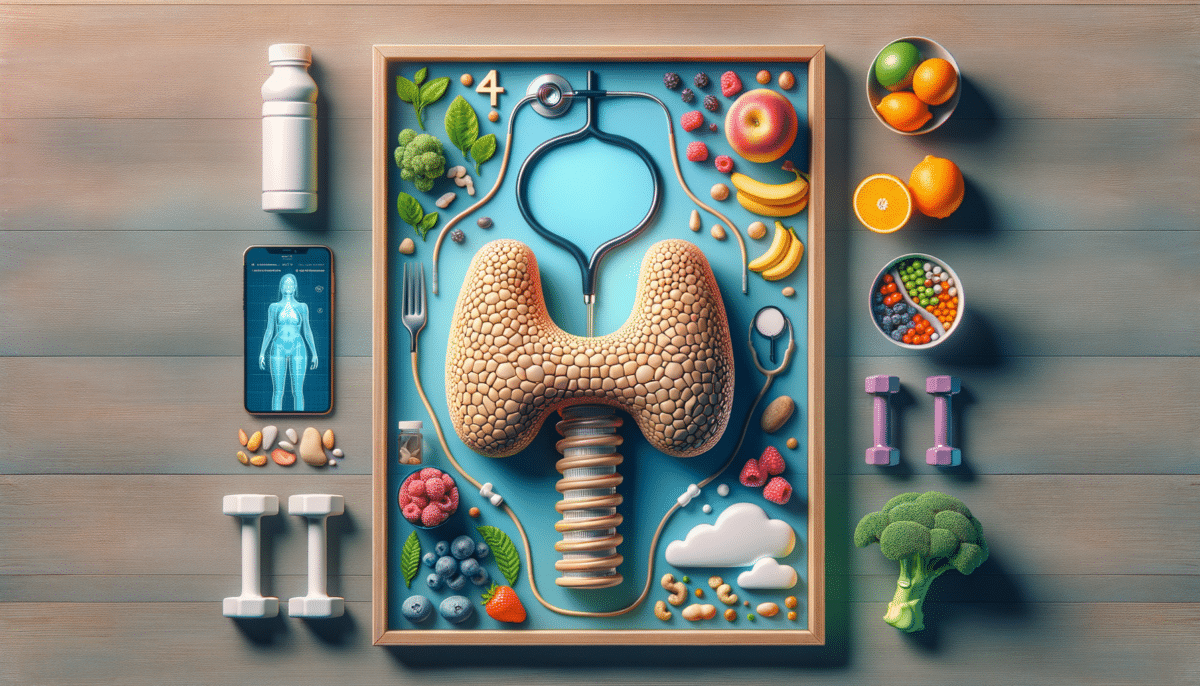The Role of the Thyroid Gland in the Body
The thyroid gland, a small, butterfly-shaped organ located in the neck, plays a pivotal role in the body’s endocrine system. It secretes hormones such as thyroxine (T4) and triiodothyronine (T3), which are critical for regulating metabolism. These hormones influence how the body uses energy, affecting nearly every organ in the body. A well-functioning thyroid ensures that the body’s metabolic rate is balanced, which is essential for maintaining energy levels and supporting various bodily functions.
Thyroid hormones are also involved in regulating heart rate, body temperature, and even mood. For instance, an overactive thyroid, a condition known as hyperthyroidism, can lead to symptoms such as rapid heartbeat, weight loss, and anxiety. Conversely, an underactive thyroid, or hypothyroidism, can cause fatigue, weight gain, and depression. Understanding the role of the thyroid is crucial for recognizing how imbalances can impact overall health.
Moreover, the thyroid interacts with other glands in the endocrine system, such as the pituitary gland, which produces thyroid-stimulating hormone (TSH) to regulate thyroid function. This delicate balance underscores the importance of thyroid health in maintaining systemic harmony within the body.
Common Thyroid Disorders and Their Symptoms
Thyroid disorders are relatively common and can affect individuals of all ages. The most prevalent conditions include hypothyroidism, hyperthyroidism, thyroid nodules, and thyroid cancer. Each disorder presents unique symptoms and challenges, requiring tailored approaches for management and treatment.
Hypothyroidism, characterized by insufficient hormone production, often leads to symptoms such as fatigue, weight gain, and cold intolerance. In contrast, hyperthyroidism results from excessive hormone production and can cause symptoms like weight loss, heat intolerance, and increased heart rate. Both conditions can significantly impact quality of life if left untreated.
Thyroid nodules are growths that can develop within the thyroid gland. While most nodules are benign, some may be cancerous, necessitating further evaluation and intervention. Thyroid cancer, though less common, is a serious condition that requires prompt medical attention. Early detection and treatment are crucial for improving outcomes.
Recognizing the symptoms of thyroid disorders is the first step in seeking appropriate care. Regular check-ups and thyroid function tests can help detect abnormalities early, allowing for timely management and reducing the risk of complications.
Diet and Lifestyle Factors Affecting Thyroid Health
Diet and lifestyle choices can have a significant impact on thyroid health. Nutrients such as iodine, selenium, and zinc are essential for proper thyroid function. Iodine, in particular, is a critical component of thyroid hormones. A deficiency in iodine can lead to hypothyroidism, while excessive intake may contribute to hyperthyroidism.
Incorporating foods rich in these nutrients can support thyroid health. For example, seafood, dairy products, and iodized salt are excellent sources of iodine. Selenium and zinc can be found in nuts, seeds, and whole grains. Ensuring a balanced diet that includes these nutrients can help maintain optimal thyroid function.
Beyond diet, lifestyle factors such as stress management and regular exercise also play a role in thyroid health. Chronic stress can disrupt hormone balance, potentially leading to thyroid dysfunction. Engaging in stress-reducing activities like yoga or meditation can be beneficial. Additionally, regular physical activity supports metabolic health and can help regulate thyroid hormone levels.
By making informed dietary and lifestyle choices, individuals can take proactive steps to support their thyroid health and overall well-being.
The Importance of Regular Thyroid Screening
Regular thyroid screening is an important aspect of maintaining thyroid health. Many thyroid disorders can develop gradually, with symptoms that may be subtle or mistaken for other conditions. Early detection through screening can help identify potential issues before they lead to significant health problems.
Thyroid function tests, including measurements of TSH, T4, and T3 levels, are commonly used to assess thyroid health. These tests can help determine whether the thyroid is functioning normally or if there are signs of hypo- or hyperthyroidism. In some cases, additional imaging tests, such as ultrasound, may be used to evaluate thyroid structure and detect nodules.
Individuals with a family history of thyroid disorders, autoimmune conditions, or those experiencing symptoms suggestive of thyroid dysfunction should consider regular screening. Early intervention can prevent complications and improve quality of life.
By prioritizing regular thyroid screening, individuals can take an active role in managing their health and ensuring that their thyroid gland functions optimally.
Natural Remedies and Medical Treatments for Thyroid Disorders
Managing thyroid disorders often involves a combination of medical treatments and natural remedies. The approach depends on the specific condition and its severity. For hypothyroidism, synthetic thyroid hormones are commonly prescribed to restore hormone levels and alleviate symptoms. Regular monitoring and dosage adjustments are essential to ensure effective treatment.
In cases of hyperthyroidism, treatments may include antithyroid medications, radioactive iodine therapy, or surgery. These interventions aim to reduce hormone production and manage symptoms. Each treatment option has its benefits and potential side effects, necessitating careful consideration and consultation with healthcare providers.
In addition to medical treatments, some individuals explore natural remedies to support thyroid health. Herbal supplements, such as ashwagandha and guggul, are believed to have thyroid-supportive properties. However, it’s important to approach these remedies with caution and seek guidance from healthcare professionals to avoid interactions with prescribed medications.
Ultimately, a comprehensive approach that combines medical treatments with lifestyle modifications and natural remedies can be effective in managing thyroid disorders and promoting overall well-being.
